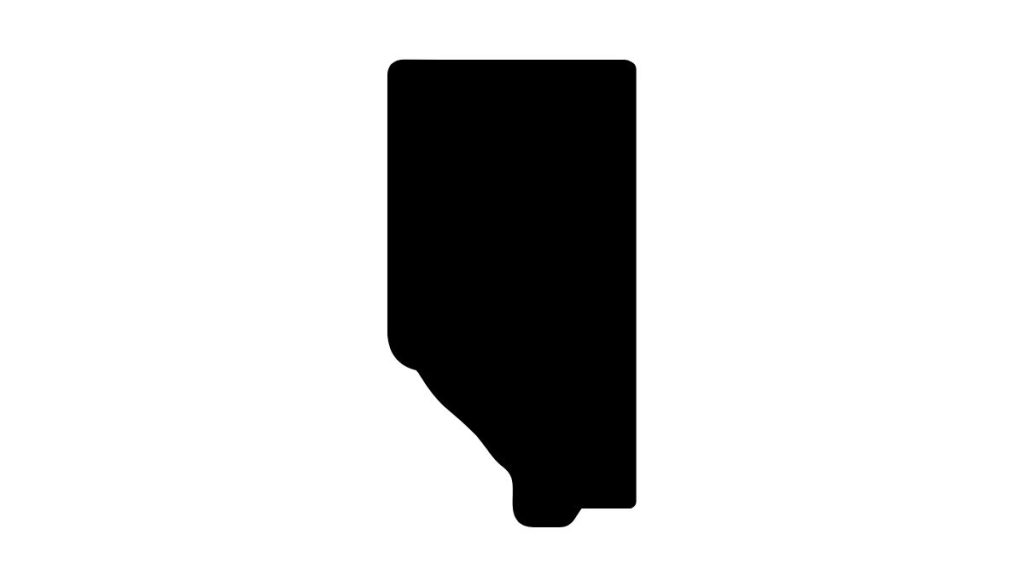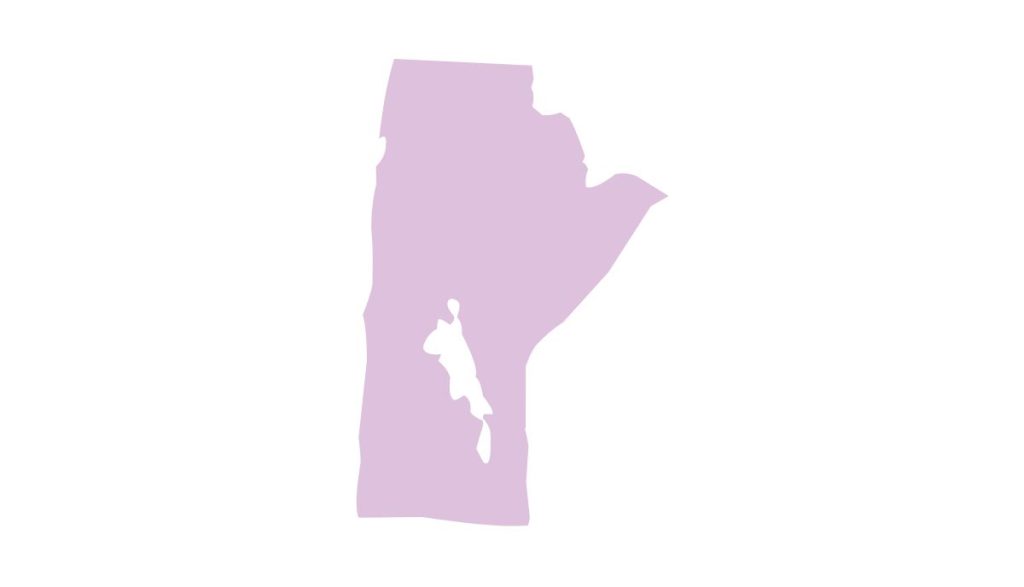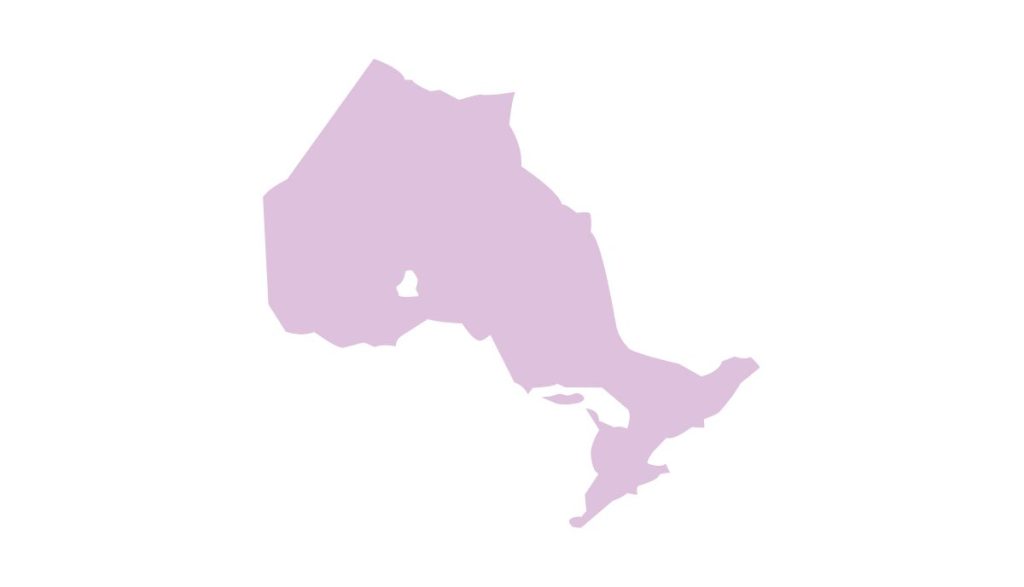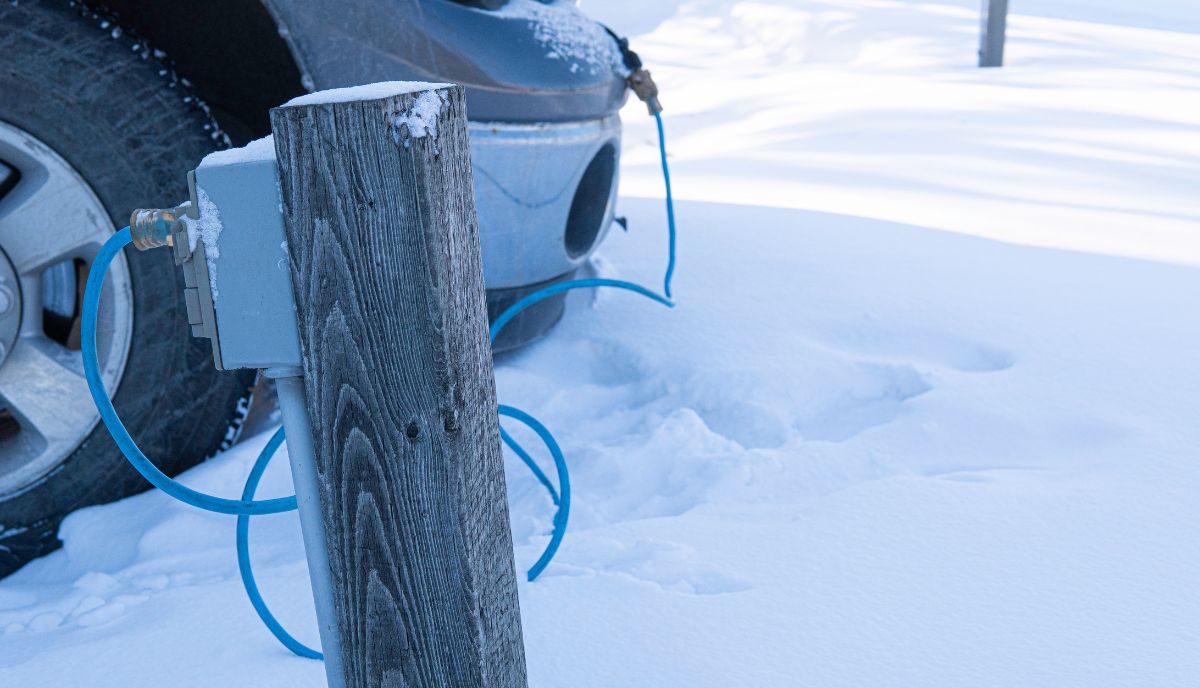This question matters because Canada is not a monolith. The rules tend to vary with each province. If you’re migrating to the country, start by determining where you intend to live. The conditions in your province will tell you whether or not block heaters are necessary.
Alberta:

Alberta is a prairie province near British Columbia. It is also the fourth largest province in the country, hosting over 4M people.
Overview of Winter Climate Conditions In Alberta And The Need For Block Heaters
- According to Britannica, Alberta gets more sun than other provinces. You should expect dry and sunny winters punctuated by Chinook winds.
- Winter starts in November and ends in February. Temperatures range between -1 C and -16 C. Travel Alberta expects Fort McMurray to record the lowest temperatures, with three hours of sunlight per day and 17mm of rain per month.
- CBC News ran a story in 2021 about freezing weather that assaulted Alberta in December, with temperatures falling as low as -55 C in some places. Multiple communities kept setting new temperature records daily. Work stopped in Edmonton while authorities removed the snow and ice from residential streets.
- Those stories matter because people usually deploy block heaters once temperatures exceed -15 C. But even if temperatures in your community are typically higher than -15 C during the winter, don’t be surprised if the unexpected happens and freezing temperatures below -15 C settle over your home.
- This Immigrant Services Calgary guide has also noted that snow can fall as early as September.
Official Regulations And Guidelines Regarding The Mandatory Or Recommended Use Of Block Heaters In Alberta
Block heaters are not mandatory. The local authorities will encourage you to install and use them. But they won’t penalize you for driving a vehicle without a block heater. However, most cars you encounter in an Alberta dealership have a block heater.
This has nothing to do with the law. Manufacturers know Canada has freezing winters, and temperatures can remain below -15 C for days. Therefore, cars sold in places like Alberta have built-in heaters.
If yours doesn’t have one, it probably originated from outside Alberta. And if it comes from within Alberta, it has the heater, but you have failed to find it. Look again. Better yet, drive the car to a dealership. They will find the device for you.
Surprisingly, one CBC News report from 2018 noted that Alberta drivers have heaters but rarely use them. They based this information on an Alberta Motor Association survey which found that seven out of ten Albertans did not plug their cars in even when temperatures fell below -15 C.
They refused to adopt the habit because their cars had always started in cold weather, regardless of the temperature.
Implications Of Not Using A Block Heater In Alberta’s Cold Weather
- The car won’t start because the battery has failed.
- The oil won’t flow because cold temperatures have changed its viscosity.
- Poor lubrication resulting from thick oil will damage the engine’s moving parts.
- The coolant will freeze.
Manitoba

Manitoba is the fifth most populous province in the country. It has a varied landscape that includes dense forests, freshwater lakes, grasslands, and a coastline.
Examination of Manitoba’s Winter Climate And The Importance Of Block Heaters
- The province is moderately dry.
- The flat landscape exposes Manitoba to everything from cold arctic air masses to the humid air originating from the Gulf of Mexico.
- Winnipeg temperatures range between -13 C and 27 C between January and July. You see snow between November and April. This period lasts longer in the north.
- The lowest temperatures were recorded in 1899 (-52.8 C). According to this CTV News report, Winnipeg broke recent records in 2021 with temperatures of -38.8 C. So temperatures in the province can fall lower than you think.
Official Regulations And Guidelines Regarding The Mandatory Or Recommended Use Of Block Heaters in Manitoba
Manitoba doesn’t have regulations that compel drivers to use block heaters. However, manufacturers include these devices in all the cars they sell in Manitoba. You will be hard-pressed to find a vehicle in Manitoba that doesn’t possess a block heater.
Block heaters are so common in the province that local authorities in Winnipeg passed a law in 2016 prohibiting drivers from using extension cords to run their heaters while parked on city streets.
You also have this article in the Winnipeg Free Press where Steve Chipman (The Canadian Automobile Dealers Association Chairman) reveals that every driver in Manitoba has a block heater. Either the vehicle came with the device, or they installed one later.
Additionally, Manitoba Public Insurance has raised concerns about the number of vehicle fires that start because of block heaters with corroded or damaged cords, further proving that block heaters are more common than one may realize.
Potential Consequences Of Not Using A Block Heater In Manitoba’s Frigid Temperatures
- The car may refuse to start once temperatures dip below -15 C.
- You will increase the engine’s rate of wear and tear.
- You will weaken the battery.
- The oil will become too thick to circulate.
Saskatchewan

Saskatchewan borders Alberta, Manitoba, Nunavut, and the US states of Montana and North Dakota. You will find the people in the southern prairie half. Forests cover the northern half, hence the sparse population.
Understanding The Winter Climate In Saskatchewan And The Role Of Block Heaters
- The province has extreme variations in its climate. These variations make farming a challenge.
- For instance, temperatures in January can fall as low as -53 C, only to climb to 41 C in July.
- The average temperature in arable areas ranges between -21 and -12 C in January.
- Expect subarctic conditions in the northern parts (from La Ronge onward).
- Winters are incredibly cold, with temperatures sitting at -17 C for several weeks because of the Arctic air coming down from the north.
- Mapple Dreams have published a table showing the temperatures experts recorded in December 2021 in various Saskatchewan communities. The temperatures range between -31 and -40.7 C. For many communities, these were record-breaking temperatures.
If there’s any province in Canada that demands block heaters, it’s Saskatchewan. Keep in mind that block heaters become necessary once temperatures fall below -15 C. You should expect Saskatchewan’s winters to exceed that threshold with great ease in most years.
Review Of Regulations And Guidelines Pertaining To The Mandatory Or Recommended Use of Block Heaters In Saskatchewan
Manufacturers have a habit of adding block heaters to the cars they sell in places like Saskatchewan, but only because they know that Saskatchewan winters are a threat to car engines.
Manufacturers want their engines to start regardless of the time of year. A block heater prevents cold starts by keeping the engine warm on freezing mornings. However, they are not obligated to do so.
Many Saskatchewan residents drive cars without heaters because they bought them from dealerships outside the province.
This Saskatchewan Government Insurance Guide recommends the use of block heaters (along with snow tires and gas line antifreeze). But this is a suggestion. You don’t have to install or use a block heater if you don’t want to.
Exploring The Effects Of Not Using A Block Heater In Saskatchewan’s Harsh Winter Conditions
- You damage the engine’s moving parts because the oil is too thick to lubricate them.
- The engine can overheat because the coolant has frozen. It can’t flow through the engine.
- The vehicle’s toxic emissions will increase.
- The car’s fuel consumption will increase.
Ontario

Ontario borders Manitoba, Hudson Bay, James Bay, Quebec, and US states like Pennsylvania, Michigan, and Ohio. Ontario is Canada’s second-largest province and also the most populous.
Insight Into Ontario’s Winter Climate And The Necessity Of Block Heaters
- Southern Ontario has mild winters because of the heat the lakes release.
- You will also find moderate winters around Lake Superior and Lake Huron’s eastern shores. But the snowfall is heavy.
- Northern Ontario has subarctic conditions. Experts routinely record temperatures as low as -40 degrees C.
- Settlement.org has noted that temperatures in the winter tend to sit below 0 degrees C during the day and at night in populated sections of the province.
- Winter conditions start in November and end in March.
Examination Of Regulations And Guidelines Regarding The Mandatory Or Recommended Use of Block Heaters In Ontario
While manufacturers include block heaters in vehicles sold in Ontario, they are not legally obligated to do so. You won’t incur fines or penalties by driving a car without a block heater during Ontario’s winter months.
That said, block heaters are commonplace in Ontario vehicles. Most residents you consult expect every car they drive to have one, even if they don’t use them.
Considerations And Potential Drawbacks Of Not Utilizing A Block Heater In Ontario’s Cold Weather
- You waste fuel by idling the car to warm the engine.
- You lower the vehicle’s fuel economy.
- The car may refuse to start, particularly diesel models.
- The oil will become thick and gooey.
- The car’s emissions will increase.

